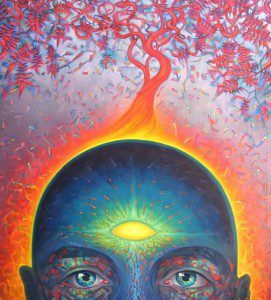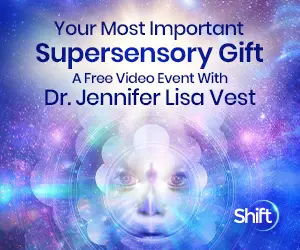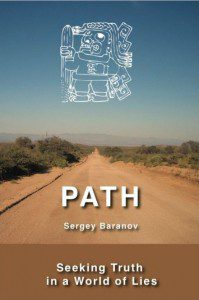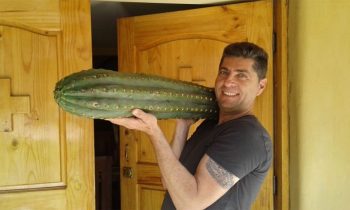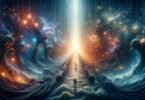Contributing writer for Wake Up World
“To fathom hell or soar angelic, just take a pinch of psychedelic.” ~ Humphry Osmond
Psychedelic simply means ‘mind manifesting’ (mind = psyche, manifest = delos), a term first sculpted from the clay of words by doctor Hampry Osmand while preparing for the psychiatric conference in 1956. He was the same doctor who has administered mescaline, a naturally occurring alkaloid in Peyote and San Pedro cactus, to Aldous Huxley, who wrote about his experience in his epic book The Doors Of Perception, which took off like a wild fire, sparking both delight and critique.
Although being aware of the book, by the first time I read it I had already had 10 years of experience and roughly 700 mescaline journeys, always done in shamanic setting, and was rather looking for faults in Huxley’s writing. I found none, however, I was rather humbled by such a brilliant account. He has definitely seen the essence and touched the heart of the mystical experience, to which mescaline served as the key, unlocking the forbidden doors of perception.
We should look at psychedelics as powerful tools for studying the inner world of man, just as the telescope is used as an instrument to study stars. That which is seen and learned through the telescope will remain unknown for the man who looks at the stars with the naked eye. And just as the telescope is helping to focus the light emitted from the darker corners of the cosmos, thus making it seen, in similar manner psychedelics are helping us to focus the attention on our consciousness, magnifying it to a comprehensible size.
Psychedelic Experience
So what is a psychedelic experience?
Well, for certain, it is not contained in the words describing it. It is in fact a wordless, internal and intimate encounter with the Other, which has many faces. When we refer to the mescaline experience in particular, the closest word to describe an indescribable experience would be: ‘’beatific vision’’, as it has been rightly noted earlier by mystics. We can write poetry about it and still be far from the experience itself. Words are only symbols, a finger pointing to the moon, not the moon itself. “Words are utter but fail to enlighten”, as Aldous Huxley has precisely said.
Through mescaline, one gains admission to the real world, escaping limitations of the linguistic prison, which although is rich with a tapestry of words and concepts, is still a prison.
The validation of this experience is a personal quest and a solitary journey, even when taken together with others. It’s like life and death; we are born and die alone. Same with the psychedelic journey. A mescaline experience is capable of opening the inner vision, revealing the unseen. It is a key with which you can unlock the mental shackles and set your mind free. It is the fuel we need to reach the stars without taking off the ground.
But a psychedelic experience cannot be viewed and studied only scientifically as merely a chemical reaction in the brain. In addition to this kind of study, the scientists who are on the case must have the experience themselves. How can one otherwise learn about the water without ever getting wet? This whole phenomenon belongs to another order, another realm of consciousness which undeniably exists although cannot to be measured or captured on the screen. It belongs to metaphysics, which is a fundamental part of a human existence.
As I have myself been interested in the Eastern spiritual paths long before I met shamanic plants, divine cactus of Peru and Mexico in particular, I could deeply relate to Huxley’s search and feel his passion for the direct spiritual experience of an objective reality. The stupendous beauty of the world engulfed with life and meaning, which is always present behind the veil of an ordinary perception of reality – which can be gently lifted by the grace of the mescaline cacti – is that very same place which has been known for ages by the Sufis, sages and mystics of the East.
Born an atheist in the Soviet Union in a Jewish family, I was looking for God all my life, trying to prove that God does not exist. But only after having my psychedelic experiences on mescaline, I began to understand that I was looking for God in the wrong places. The God I found was not living in the buildings nor present in the books.
During the years, I was pondering the questions such as: Was the psychedelic experience real? Was it subjective? Was it a shortcut to Enlightenment? Was it beneficial to me and our species?
I wanted to find my own answers to my questions, knowing that I cannot take opinions of other people for an answer. Those, to me, would be merely words.
So here, I would like to share some of my answers to myself which perhaps you will find useful to you as well, as you search for your own answers. My view is an ordinary view of a non-ordinary reality which, under certain conditions, is accessible to all.
An Ordinary View of a Non-Ordinary Reality
Is the psychedelic experience real?
Well, that depends on what we think as being real. If we think that real is something we can touch with our hands, then the answer is NO. But if real means something which can be observed and repeatedly experienced, then the answer is YES.
Is this experience subjective?
Yes. Any type of experience can only be subjective since any experience requires a subject to be experienced. Thus objective reality can be only experienced subjectively.
Is this a shortcut to Enlightenment?
This question would first demand a definition of Enlightenment.
If enlightenment means something different than the act of bringing the light into our own ignorance about ourselves and the world we are living in, while making us aware of our own embodied consciousness which was lucky enough to experience life through the human body, embodying that expanded and all inclusive consciousness which can recognize itself in all other life forms, which together with the galactic mass rotate in the limitless space on a tiny but beautiful cosmic oasis we call Earth, while realizing the miracle of life made of cosmic dust and remaining a sovereign point of perception of the infinite reality of which it is also a part, which in fact is an illusion that irrefutably exists… then I would not know the answer.
But if enlightenment means what I just described, then the answer is YES.
Would this “shortcut” not be welcomed if it allows a man to live a normal life as human being, a life of joy and love, while exploring his own consciousness and finding God in the atom? Would the fast-track not be welcomed as opposed to the tedious work and a lifelong, self-restraining path prescribed to Eastern adepts?
I am mortal; I want it now and I want it all.
Having said that, however, I do not mean to put down the ancient Eastern paths which indeed are valid. In fact, Huxley’s study and involvement in Vedanta for over 20 years has allowed him to recognize the essence of the mescaline experience, transfiguring a psychedelic journey into a spiritual one. This psychedelic spirituality or, as we also call it, an evolutionary shamanism, simply means the use of the energy of psychoactive plants to ponder the nature of reality and ourselves within it, as opposed to the traditional shamanism which mainly deals with healing.
There is still an open debate about whether or not a glimpse of awakening guided by psychedelic substances and plants is valid and equal to the Eastern paths of mysticism. Here, perhaps we can answer this question with another question: Does the way to knowledge matter more than the knowledge itself? Is the method paramount to results? If both can lead to the same levels of being and understanding, then what would be the difference and what are the indications of one being inferior or superior to the other?
Both ways are valid and can be complementary.
It is important to note that a rich, millennium-long spiritual tradition of India, which is active to this day, has created a certain egregor of enlightenment which serves as a fertilizer for its own kind. Deeply embedded in the culture, its influence still gives birth to a sporadic awakening in people of this land. For us Westerners, who have become disconnected from our spiritual roots, first by religion and later by science (or shall we say scientism, for science has become dogmatic), and whose perception of reality has been conditioned and narrowed down to the world of superstition and physical appearances, incapable of seeing beyond either. Another type of help is needed– that which is capable of catapulting us into the realm of consciousness where saints feel at home.
Is psychedelic experience beneficial?
Well, that would depend on the person. There is no cure for stupidity. But generally speaking, a responsible use of psychedelics can be quite beneficial, not only to the person who is experiencing them but for his family, his surrounding and ultimately to the world we live in. It can be likened to the alchemical process during which the impurities in man are burnt, while purifying him into a better person.
If the experience is able to have an impact on our behavioral patterns while helping us stop being destructive to ourselves and others; if it can trigger both physiological and psychological healing, helping a person to get rid of alcohol and drug addictions while in itself remaining non-addictive; if it has the capacity to open artistic and cognitive abilities which otherwise would remain in the latent form, and really make one think, thus contributing to the cultivation of peace, love and consciousness within oneself and surrounding — then what would be the answer?
Having said that, however, it is also important to mention that no psychedelic substances or plants should be taken lightly. It is a serious undertaking for mature and responsible people who are looking for healing, understanding and expansion of their perception of reality, and willing to engage with life, instead escaping it.
Path: A book by author Sergey Baranov:
This is a book about the author’s search for truth and the meaning of life. His path took him through four continents, four countries, four cultures, and four languages, far beyond the walls of religious institutions and far above the boundaries of the “ego.” It was a search for answers to intimate questions, in distant places of the world, interacting with people whose way of life allows them to keep their true connection with Nature — a key to understanding oneself and the world in which one lives.
His path began with a fear of Death and a thirst for knowledge, and through contemplation and experience he was able to gain an understanding which helped him drop the heavy burden of fear and illusions and helped him to live his life with peace in his heart and clarity in his mind. Working with shamans and sacred medicine plants both in North and South America, led to his awakening and now he humbly offers this story to you with the hope that you too will realize your potential.
Sergey Baranov’s book “Path” is available here on Amazon, or visit facebook.com/Sergey.Baranov.921
Recommended articles by Sergey Baranov:
- A.I. and the Synthetic Reality – A Shamanic Perspective
- Psychedelic Spirituality
- Government Is Not Your Friend – It’s Your Employee
- Living In A Dying World
- Why Consciousness Expanding Plants Are Feared And Deemed Illegal
- The ‘New World Order’ For Dummies
- From RoboCop to RoboBees – Is This The World You Want To See?
- The Business of War is the Cause of War
- Between Life and Death: How Peyote Saved My Life in Mexico
- Mescaline: An Ancient Medicine for the Soul
About the author:
Sergey Baranov is the founder of Huachuma Wasi, a healing center in The Sacred Valley of the Incas, Peru. He is the author of Path: Seeking Truth In a World of Lies, The Mescaline Confession: Breaking Through the Walls of Delusion and Write Your Zen in 30 Days. Sergey’s passion for life on Earth and its preservation is the driving force behind his work.
You can contact Sergey at www.shamansworld.org.

If you've ever found value in our articles, we'd greatly appreciate your support by purchasing Mindful Meditation Techniques for Kids - A Practical Guide for Adults to Empower Kids with the Gift of Inner Peace and Resilience for Life.
In the spirit of mindfulness, we encourage you to choose the paperback version. Delve into its pages away from screen glare and notifications, allowing yourself to fully immerse in the transformative practices within. The physical book enriches the learning process and serves as a tangible commitment to mindfulness, easily shared among family and friends.
Over the past few years, Wake Up World has faced significant online censorship, impacting our financial ability to stay online. Instead of soliciting donations, we're exploring win-win solutions with our readers to remain financially viable. Moving into book publishing, we hope to secure ongoing funds to continue our mission. With over 8,500 articles published in the past 13 years, we are committed to keeping our content free and accessible to everyone, without resorting to a paywall.

